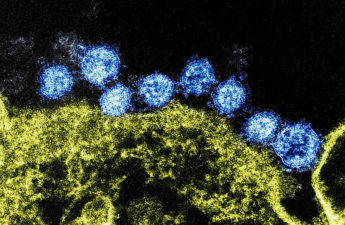Ken Anderson
Public Health Insider
Public Health — Seattle & King County
En español: Clima de Invierno: cómo mantenerse seguro y planificar las necesidades médicas

After high winds earlier this week, many people across King County still do not have power – and more strong winds are forecast between 10pm tonight (Thursday) and 10am Friday morning.
Read and share the tips below to stay safe and warm when the power is out, and check King County Emergency News (kcemergency.com) for information about cold weather shelters, places where you can charge electronics, and road closures.
Stay safe and warm when the power is out
High winds and power outages can bring several health and safety risks. If you see damaged or downed power lines, don’t go near them, avoid any standing water, and call the utility company about the line.
Prevent carbon monoxide poisoning—never use generators, charcoal or gas grills, or propane heaters indoors. Get a carbon monoxide detector for your home and check the batteries. More information, including links to translated posters and information: kingcounty.gov/carbonmonoxide.
Food poisoning is also a risk when the power goes out. Keep refrigerator and freezer doors closed to keep cold air inside. If possible, move perishable food to a cooler with ice packs or frozen items, and place it outside in the shade. If foods are above 40°F too long they could make you sick. When in doubt, throw it out! More information: http://cdc.gov/foodsafety

Wear several layers of light weight, warm clothing instead of one layer of heavy clothing. Wear hats, mittens, and blankets indoors, stay together in one room with the door closed, and close curtains and cover windows and doors with blankets. Have a backup plan of places to go to stay warm during a long outage, like a friend’s home that has power, the library, a community center, or a shopping mall.
Hypothermia: Cold temperatures can make your body’s temperature drop dangerously low. Learn how to recognize this condition and what to do.
This blog post has more information and tips about safety if your home is without electricity: Brrrr! How to stay warm and safe when the power is out – PUBLIC HEALTH INSIDER
Plan ahead for road closures if you have medical needs
Fallen trees and other winter weather events can disrupt traffic and close roads, and make it hard for people to get to medical appointments or get the medical supplies they need.
Things to consider if you depend on:
- Oxygen tanks, medication prescriptions, or other medical supplies: Plan with your doctor, pharmacist, or medical service provider about what to do if they can’t be delivered or if you can’t get to the pharmacy. Ask your doctor and/or pharmacist if you can have a 3-day emergency supply.
- Medical equipment powered by electricity (beds, breathing equipment or infusion pumps): Check with your medical supply company and get information about a back-up power source such as a battery or generator.
- Intravenous and feeding tube equipment: Know if your infusion pump has battery back-up, and how long it would last in an emergency. Ask your home care provider about manual infusion techniques in case of a power outage.
- Dialysis: Make back-up arrangements for transportation, like asking a friend with an all-wheel drive vehicle to help you get to your dialysis appointment. Get information about other dialysis facilities in your area, and find out if they provide the type of treatment you need. Contact the facility to be sure they can treat you in an emergency. Know what diet to follow if your dialysis must be delayed.
More health and safety tips for winter weather
High winds can bring down large amounts of fallen branches, leaves, and pine needles. Clear storm drains on your property and street to prevent flooding.
And remember to stay home if you are feeling sick to avoid spreading flu, RSV, and COVID this winter!
As always, please share this information with friends, loved ones, and neighbors to help them stay safe, and check up on people who may need help during severe weather.
Visit our Winter weather safety and preparation page for additional resources.
Originally published November 21, 2024.


